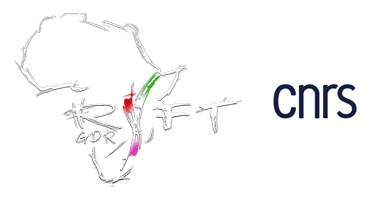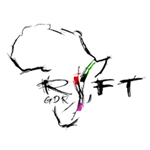Calls for projects
Mobility Grant 2021
In order to promote and to ease exchanges between laboratories and partners of the GDR, we propose a mobility grant for students (masters, PhD students, post-doctoral students) whose work fits into the themes of the GDR.
This aid will be distributed according to the requests and the 2021 budget of the GDR. To complete this budget, the GDR has responded to the AAP Sub-Saharan Africa 2021.
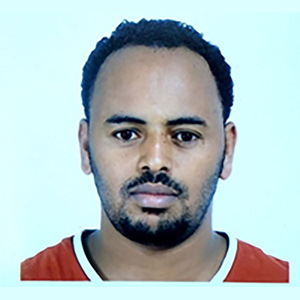
Yared Assefa Gettie (PACEA)
Assefa is Ethiopian. He currently works as paleoanthropology curator at the National Museum of Ethiopia, in Addis Ababa. He obtained a BSc degree in Applied Biology and a MSc degree in Paleontology and Paleoenvironment from Addis Ababa University in 2010 and 2016, respectively. He had the opportunity to directly learn from a number of internationally recognized scientists, and also to be involved in scientific projects, to coauthor a scientific publication (Zanolli et al., 2017, https://doi.org/10.1002/ajpa.23135) and communications presented to international meetings (East African Palaeontology and Palaeoanthropology workshop in Addis Ababa, Ethiopia, in 2011 and 2017; Mombasa, Kenya in 2013). Thanks to the support of the GDR Rift, He will have the chance to come to the University of Bordeaux in France and continue working with Dr. Zanolli and further develop international collaborations.
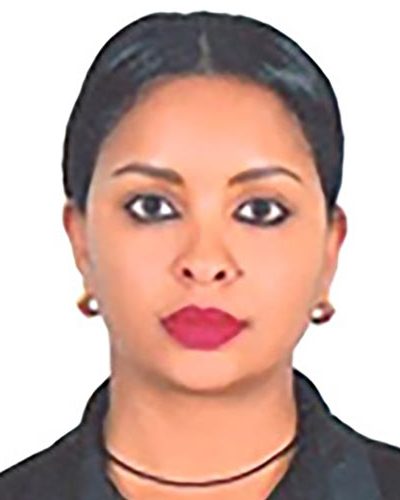
Friyat Agesom Kidane (TRACES)
Friyat Angesom Kidane is a Lecturer in Archaeology and Heritage management at Aksum University, Ethiopia. She is going to study her PhD in France at the University of Toulouse Jean Jaures, under the supervision of Prof. Caroline Robion-Brunner. Her area of interest mainly concerned the ‘Use of fuel for metallurgical and domestic activities in medieval and contemporary periods: the case of Konso region, South Ethiopia’. Konso is the perfect region to study the use of fuel in a diachronic and interdisciplinary approach. Traditional iron smelting is a vanishing tradition in Ethiopia and other parts of Africa. It is, thus, very important to document such a vanishing tradition before its complete disappearance. The study will also help to understand the culture-history of iron technology in the region and reconstruct the pre-medieval and medieval palaeoenvironment of the region through anthracological, archaeobotanical and ethnoarchaeological approaches
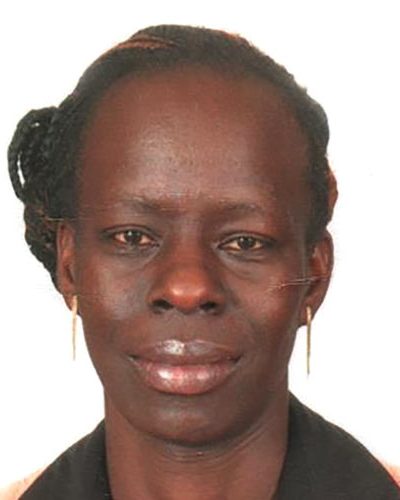
Susan Onyango (EHESS – LAIOS)
Susan Onyango is currently a PhD student at the Ecole des Hautes Etudes en Sciences Sociales – Laboratoire d’anthropologie des institutions et des organisations sociales (EHESS – LAIOS) in Paris, with Irène Bellier as her thesis director. Nathalie Bonini from the University of Tours and Winnie Mitullah from the University of Nairobi are members of her thesis committee. She holds a Bachelor’s degree in Education from Kenyatta University and a Master’s degree in Development Communication from Daystar University, both in Nairobi.
Her research interests lie in political anthropology and include the study of how affected people can take greater ownership of the development of geothermal resources that exist on their land in a way that meets their socio-economic needs, particularly in the context of climate change.
Informed by the fact that local people can benefit from geothermal resources on their land, which is not currently the case, she is presently working on a thesis that analyses the gap between the design of industrial geothermal projects and the socio-economic needs of local people living around geothermal sites, particularly along the Rift Valley in East Africa. This study highlights aspects related to the means of participation, decision-making and management of local populations in geothermal development projects. Conducted as an applied anthropology, her study, which also has a particular focus on indigenous peoples, addresses the issues from a gender intersectionality perspective and aims to influence the way geothermal projects are implemented as well as geothermal development policies for the benefit of the populations concerned.
Susan will use GDR funds to supplement data she has already collected in previous fieldwork, to fill in information gaps related to projects that have been initiated at some of the geothermal sites in her study since her last field visits, and to document changes that have taken place since that time.
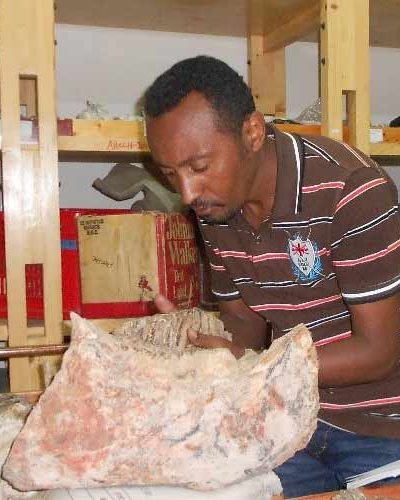
Tomas Getachew Bedane (PALEVOPRIM)
Tomas Getachew is currently a PhD student at the University of Poitiers, France. He studied his undergraduate program at Addis Ababa University (AAU) and received his bachelor’s degree in Earth Sciences in 2010. After his initial training in Earth Sciences, He has been working at the Authority for Research and Conservation of Cultural Heritage (ARCCH) as a curator of paleontology since 2011 where he was involved in projects that focus on human evolution and its environmental context in the field and the laboratory. He has more than 10 years’ experience in curating paleontological collections. He’s helped generate a different method in fossil curation activities.
In 2014, while working at the ARCCH, he received sponsorship to pursue a master’s degree at Addis Ababa University (AAU). For his MSc thesis, he studied the ‘evolutionary history and dietary adaptation of fossil elephants’ from the Shungura Formation (Lower Omo Valley, Ethiopia), under the supervision of Dr. Jean-Renaud Boisserie (CNRS). His MSc research at AAU demonstrated the potential of studying the elephant fossil record to better understand the paleoenvironments of eastern Africa and has formed the basis of his combined (second) MSc and PhD research at the University of Poitiers. There, he completed his second MSc on ‘the ecology of mega-herbivore fossils through dental wear analysis (microwear and mesowear)’ under the supervision of Drs. Jean-Renaud Boisserie and Gildas Merceron, where he learned to conduct 3D microwear textural analysis on teeth.
Tomas is interested in exploring the relationships between morphological evolution and dietary behavior of mega herbivores (proboscideans; elephants and their relatives) through dental wear analyses (dental microwear texture analysis and mesowear) as well as isotope study for a better understanding of their responses to various environmental contexts and changes.
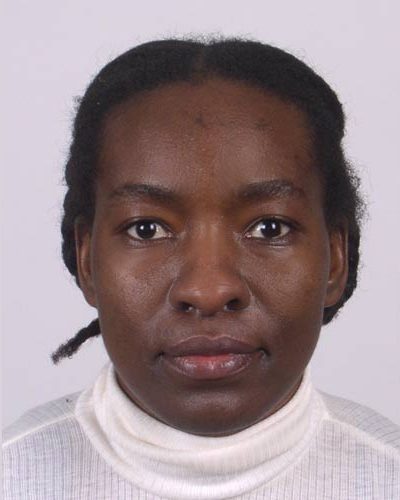
Christine Adongo (EHESS – IIAC)
Christine Adongo is currently an early stage researcher doing PhD at l’Ecole des Hautes Etudes en Sciences Sociales (EHESS – Paris), and a member of Institut Interdisciplinaire d’Anthropologie du Contemporaire (IIAC). She attained both her bachelors and Masters degrees in Environmental science at Kenyatta University in Nairobi, Kenya. Broadly, her research interests encompass environment, natural resources, local landscapes, pastoral socio-ecological transition and livelihoods. More specifically, she has worked on natural resources conservation and livelihoods, focusing on the Kenya coastal sacred Kaya forests, and pastoral futures in northern Kenya in so far as climate change adaptation and WASH management at the local level in concerned. Her most work focuses on ‘green’ projects’ implementation (geothermal energy project in Kenya) and their socio-ecological and livelihood implications on the resilience of local pastoral landscape. Christine will use the mobility funds from GDR as a post-doctoral undertaking, to advance her fieldwork and facilitate the dissemination of her work on the contested futures of geothermal in the greater Olkaria geothermal area in Kenya’s rift valley.

